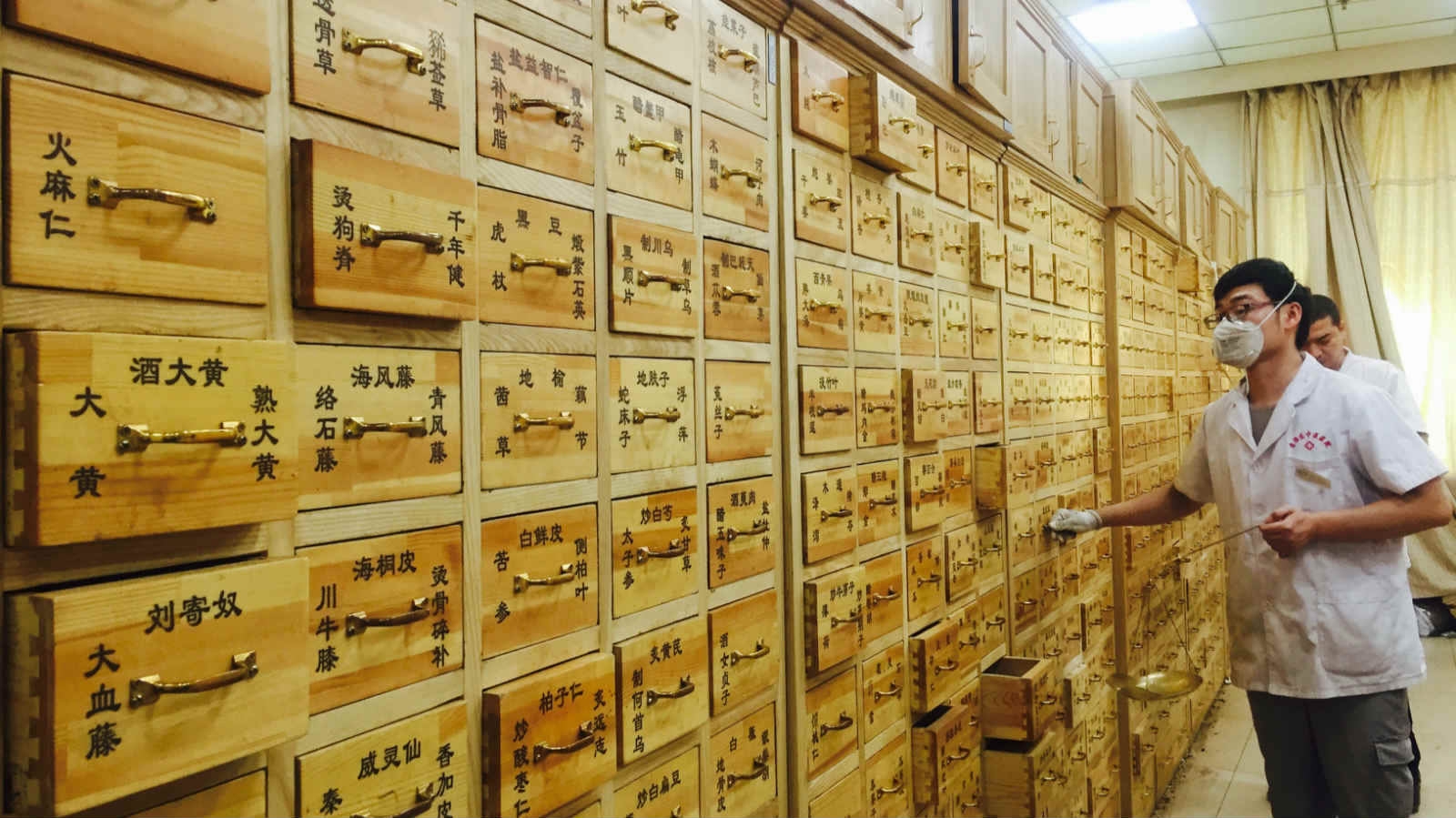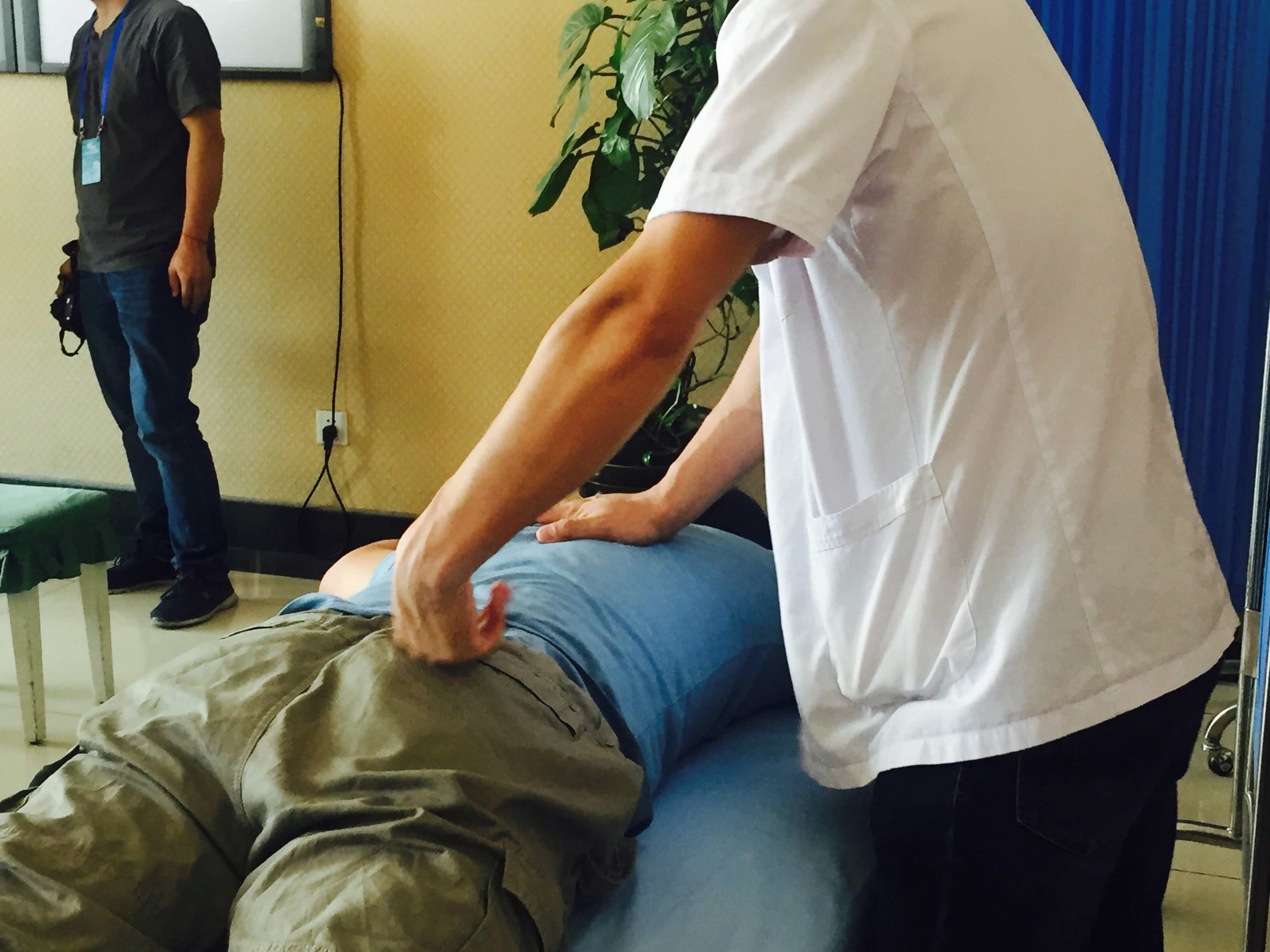
Culture & Sports
09:34, 08-Jul-2017
Discover Xinjiang: Chinese medicine benefits neighboring countries

For patients from Central Asian countries seeking traditional Chinese medicine (TCM) treatment, Xinjiang has become a compelling destination, a senior official from the largest TCM hospital in northwest China’s Xinjiang Uygur Autonomous Region told CGTN on Friday.
“Many foreign patients from neighboring countries come to Xinjiang seeking to cure chronic diseases such as rheumatoid arthritis, heart disease and high blood pressure,” said Sun Qiang, director of the publicity department of Xinjiang’s Traditional Chinese Medicine Hospital in the capital city Urumqi.
“Since 2011, more than 2,700 foreign patients have come to the hospital for TCM treatment, with over 80 percent of them from Kazakhstan,” the director said, adding the hospital also provides services for some senior figures from neighboring countries.
“Bordering several countries, including Russia, Kazakhstan and Kyrgyzstan, Xinjiang is located at the core of the Belt and Road,” Sun said. “The geographic feature is one of the advantages.”

A patient receives massage at the Traditional Chinese Medicine Hospital in Urumqi, northwest China’s Xinjiang Uygur Autonomous Region on July 7, 2017. /CGTN Photo
A patient receives massage at the Traditional Chinese Medicine Hospital in Urumqi, northwest China’s Xinjiang Uygur Autonomous Region on July 7, 2017. /CGTN Photo
The customs and languages that Xinjiang shares with neighboring countries also make it easy for foreign visitors to communicate with doctors.
Kanat from Kazakhstan is in Urumqi to cure his rheumatoid arthritis. This is the second time that the 47-year-old has come to Xinjiang for TCM therapy since 2013.
“I speak Kazakh, so I can easily talk with Kanat and his family,” said the patient’s doctor Aliya.
In addition to providing medical services for foreign patients, Xinjiang also cooperates with neighboring countries in academic exchanges. “Every year, we receive students from countries such as Kazakhstan,” Sun said. “We also send doctors to hold seminars in the countries on TCM.” He added that acupuncture and massage are popular majors among overseas students.
As part of its ambition to develop under the Belt and Road Initiative, Xinjiang aims to become a regional hub for medical care services and international exchanges in the field. This has provided a good opportunity to take TCM abroad with the help of full policy support and rich resources of capital and talents.
“We hope traditional Chinese medicine could benefit all peoples from the neighboring countries,” Sun said.
2414km
Related Story:

SITEMAP
Copyright © 2018 CGTN. Beijing ICP prepared NO.16065310-3
Copyright © 2018 CGTN. Beijing ICP prepared NO.16065310-3